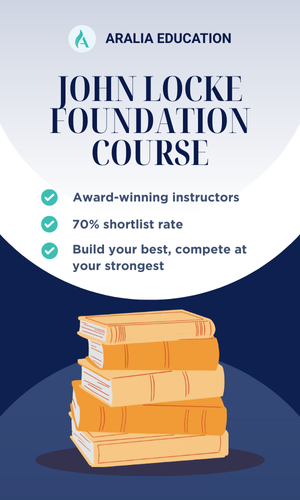Beyond just academic assignments, effective writing is a cornerstone of critical thinking, clear communication, and future professional success. Building confidence in your writing begins with understanding the core principles. As you journey through your high school and college years, you’ll encounter a variety of essay types, each designed to test different skills. An argumentative essay, our main focus for today’s topic, involves presenting a logical position supported by evidence.
1. What is an Argumentative Essay?
An argumentative essay is a genre of writing that requires you to investigate a topic, collect, generate, and evaluate evidence, and establish a position on the topic in a concise manner. Unlike a narrative essay that appeals to emotions, an argumentative essay relies on a logical, well-supported argument to convince the reader. It’s a formal, structured debate on paper, where you present your case and provide undeniable proof to back it up.
Builds Writing Skills Step-By-Step, From Foundational Techniques to Advanced Academic Research
2. Core Components of a Standard Argumentative Essay
Introduction
This section introduces the topic and provides the necessary background information. It concludes with your thesis statement, a single, clear sentence that outlines your main argument.
Body paragraphs
These paragraphs are the heart of your essay, each dedicated to a single point that supports your thesis. Each body paragraph should begin with a topic sentence and be followed by evidence from credible sources (such as research studies, historical facts, or expert opinions).
Counterargument and Rebuttal
A crucial component of an argumentative essay is acknowledging and refuting an opposing viewpoint. By addressing the other side of the argument, you demonstrate a thorough understanding of the topic and strengthen your own position.
Conclusion
Students will restate your thesis in a new way, summarize your main points, and offer a final thought or call to action that leaves a lasting impression on the reader.
The core characteristics of a great argumentative essay are a clear thesis, credible evidence, and logical reasoning. Without a strong, debatable thesis, your essay will lack direction. Without verifiable evidence and without logical reasoning to connect your evidence back to your thesis, your argument falls flat, and your claims are simply opinions. Therefore, a good argumentative essay requires extensive research, careful organization, and the ability to think critically about both your own position and opposing viewpoints.
Aralia Students Are 4x More Likely to Publish a Research Paper
3. How to Write a Good Argumentative Essay
Writing a good argumentative essay starts long before you put pen to paper (or fingers to keyboard). It begins with a thoughtful, structured approach.
Before you begin outlining, the most crucial step is to prepare and research. Start by thoroughly understanding your assignment prompt and brainstorming possible positions. Once you’ve selected a side, conduct research to gather credible evidence like statistics, expert opinions, and historical facts that will support your argument. You should also look for information that supports the opposing viewpoint, as this will be essential for your counterargument. With your research in hand, formulate a working thesis statement that is clear and concise, stating your main argument.
Then, outlining is a crucial step in the writing process, providing a roadmap that keeps your essay focused and organized. The main points to include in your outline are the introduction, which contains your thesis statement; the body paragraphs, where you plan your evidence and explanations; the counterargument and rebuttal, to show you’ve considered opposing viewpoints; and the conclusion, for a final summary and thought.
With your outline in hand, you’re ready to start writing
The first introduction paragraph is your opportunity to set the stage. You should present a hook that immediately grabs the reader’s attention. The background information should be concise and relevant, leading naturally to your thesis statement. And remember that your thesis must be a strong, debatable claim, not a simple fact.
Each body paragraph should be a self-contained mini-argument, starting with a clear topic sentence. After introducing your evidence, you also must explicitly explain how the evidence connects to your thesis. This is where you demonstrate your analytical skills.
The counterargument section is what separates a good essay from a great one. By addressing an opposing viewpoint, you show intellectual honesty and prove that you’ve considered the topic from all angles. A strong rebuttal is what truly solidifies your position as the most logical one.
Your conclusion should feel like a satisfying ending, not just a summary. Avoid introducing new information; instead, synthesize your arguments and end with a compelling statement that leaves a lasting impression. You might consider the broader impact of your argument or suggest a future direction for research.
Finally, and perhaps most importantly, take the time to proofread and edit your work. A great argument can be weakened by simple grammar or spelling mistakes. Read your essay aloud to catch awkward phrasing and ensure a smooth flow. Consider having a friend, family member, or teacher read it as well to get a fresh perspective.
By following this guide, you can transform the challenge of writing an argumentative essay into a rewarding exercise that strengthens your critical thinking and writing skills.
Want to Improve Your Essay Writing Skills?
Aralia’s Academic Writing Lab is designed specifically for high school students who want to strengthen their academic writing skills for high school essays and college preparation. Led by award-winning instructors from prestigious high schools with over 10 years of teaching experience, our program will help you:
- Build a strong foundation in academic writing
- Strengthen your critical thinking and analytical reasoning skills
- Gain experience finding and evaluating credible sources
- Receive detailed, personalized feedback on writing assignments
- Develop skills to prepare for AP, IB, and college-level writing
Explore Aralia’s Academic Writing Lab to start your writing journey today!









